Celebrating the 2024 Summer Internship in Public History and Digital Humanities
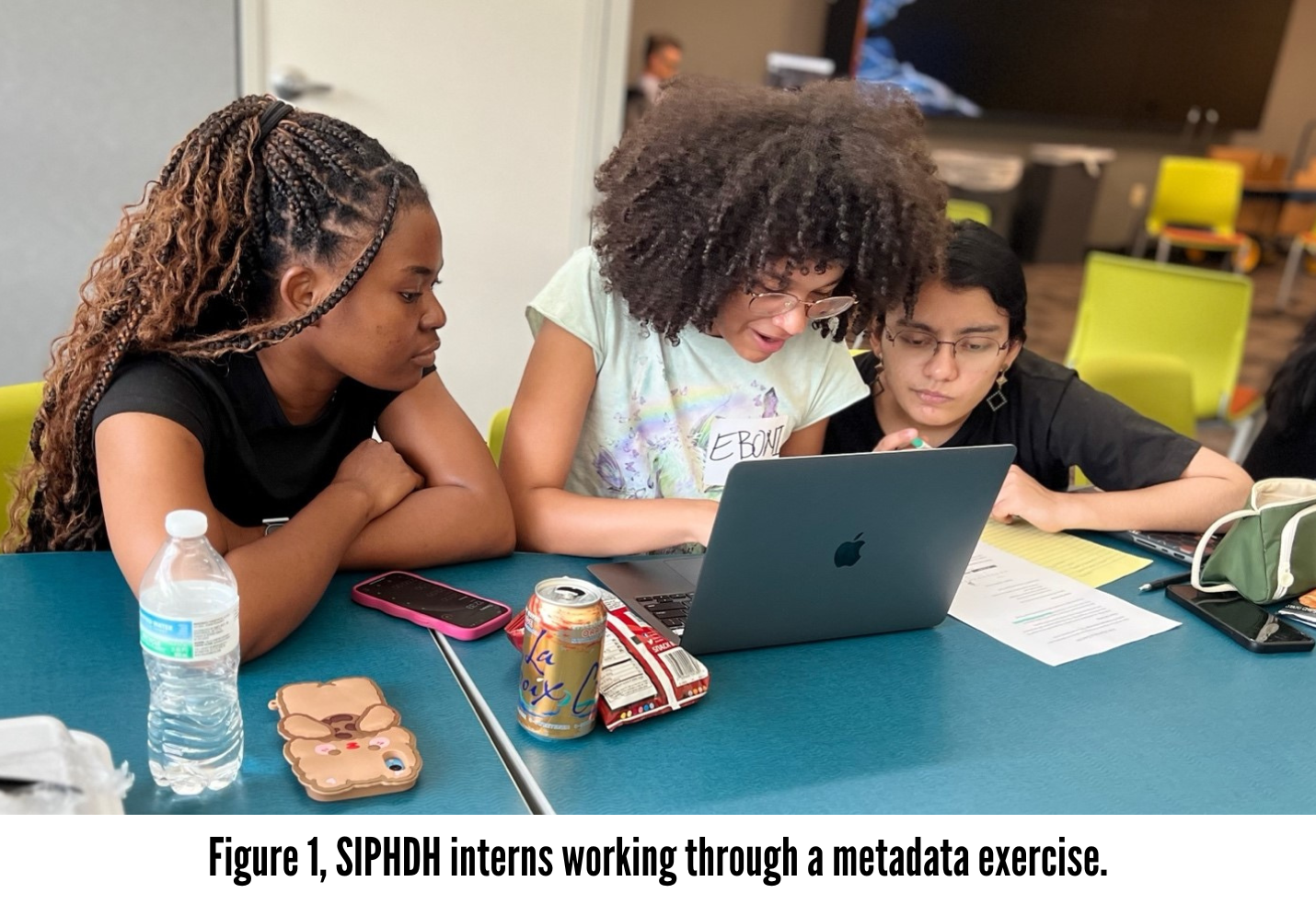
This past summer, 18 undergraduates from across the UH campus participated in the Summer Internship in Public History and Digital Humanities (SIPHDH). The ten-week intensive program was a collaboration of the UH Center for Public History (CPH) and the Digital Humanities Core Facility with financial support provided by the Hewlett Packard Enterprise Data Science Institute, UH Libraries, and the Cougar Initiative to Engage.
Through real-world projects, cohort community discussions, skills workshops, and guest speakers, SIPHDH interns learned how humanities skills of deep research, analysis, and building of arguments from evidence can be enhanced and translated into new spaces for new audiences through modern technologies and digital methodologies. Interns also learned how to break out of traditional technological and engineering processes to consider the people and context behind data and design, and how to engage responsibly and ethically in building, visualizing, and communicating arguments to diverse peoples and communities.
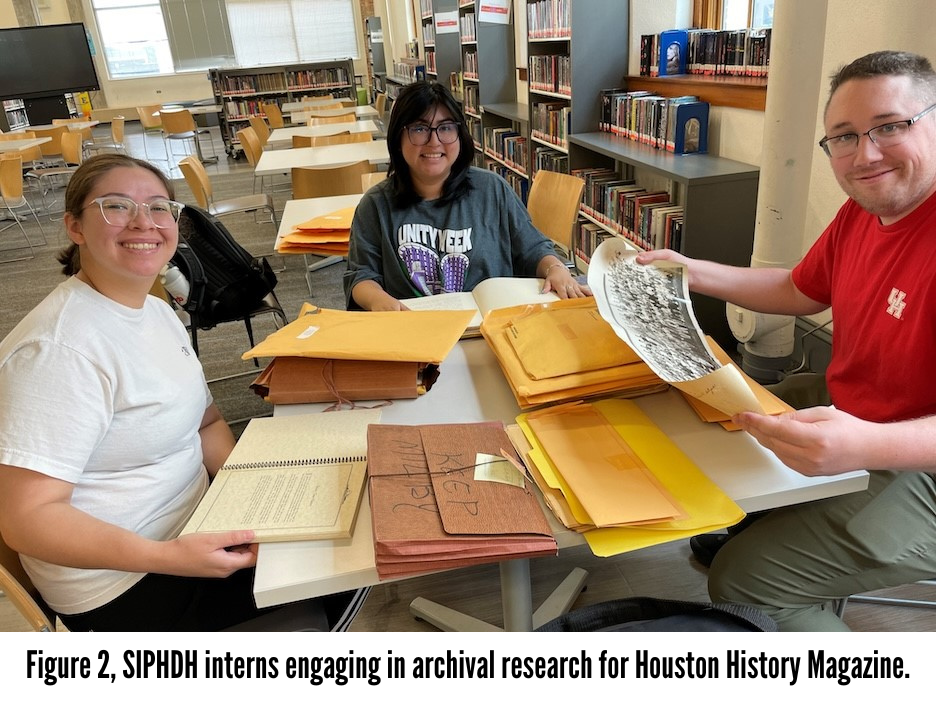
SIPHDH Director, Dr. Kristina Neumann of the Department of History and CPH affiliate, designed this year’s program alongside Dr. Linda Garcia Merchant, Director of the UH Digital Humanities Core Facility, and Dr. Andrew Kapral, Director of the Pharis Fellowship and Engaged Data Science at UH. “This interdisciplinary internship is an outgrowth of the somewhat radical idea that the humanities and STEM need each other,” stated Neumann, “and the best way that we can prepare our students to be global, active citizens is to make sure that they have skills drawn from both areas. In a world where so much is automated or replaced with AI, we need people who can think creatively, critically, and contextually about our world.”
As part of SIPHDH, each intern joined one of six ongoing faculty research projects that harness digital technologies, data science, and new media to engage the public with topics of historical and social significance. This includes:
- SYRIOS (https://syrios.uh.edu) - Directed by Dr. Kristina Neumann (History, CLASS), Drs. Peggy Lindner and Liz Rodwell (Information Science Technology, Engineering).
- Sharing Stories from 1977 (https://sharingstories1977.uh.edu) – Directed by Dr. Leandra Zarnow and Dr. Nancy Beck Young (History, CLASS), Drs. Lindner and Rodwell
- Houston History Magazine (https://houstonhistorymagazine.org/) – Directed by Dr. Debbie Harwell (History, CLASS)
- Morales Family Collection (https://artepublicopress.com/digital-humanities/) – Directed by Dr. Gabriela Baeza Ventura (Hispanic Studies, CLASS), Dr. Carolina Villarroel, Dr. Lorena Gauthereau, and Mikaela Selley (US Latino Digital Humanities Center)
- Mapping Multicultural Houston – Directed by Dr. Melody Yunzi LI (Modern and Classical Languages, CLASS) and Dr. Guadalupe San Miguel (History, CLASS)
- The 1771 Project (https://1771prototype.wixsite.com/1771) – Directed by Dr. David Mazella (English, CLASS).
Project directors guided student interns through deep humanities research aimed at scholarly and public audiences far beyond the university. Interns engaged in usability testing, web design, archival research, digitization, data management and visualization, and public writing. They gained skills in digital and data literacy; web and print editing, curation, and publication; critical thinking and analysis; and collaboration and communication.
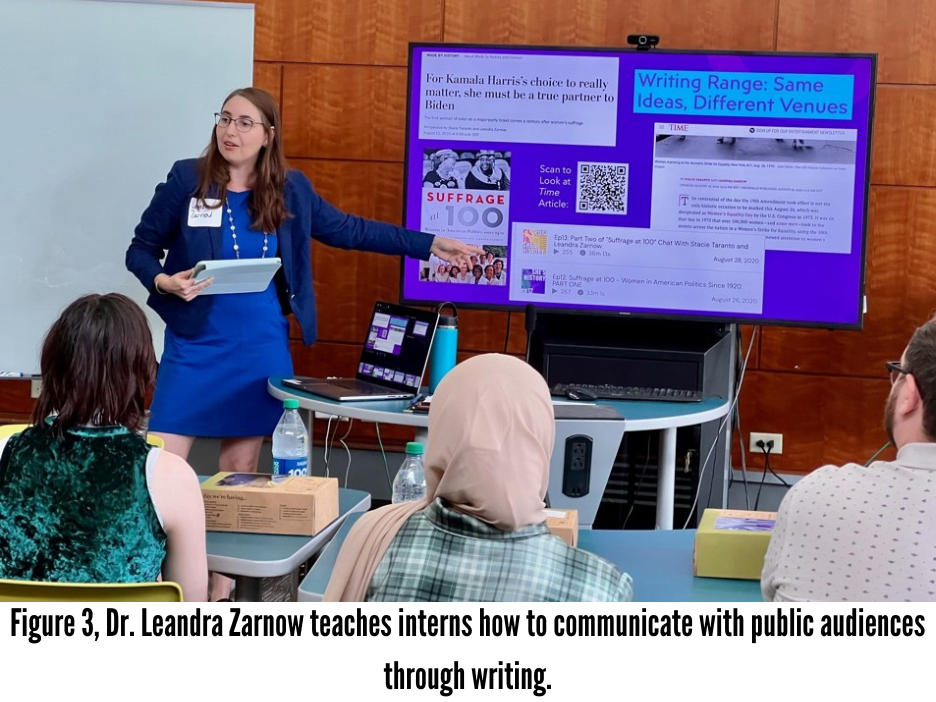
Arshiya Yasin, a senior majoring in digital media, worked on Mapping Multicultural Houston, a newly launched project seeking to preserve and recreate the lost histories of the city’s Chinese communities through archival research and AR/VR technologies. “We want to make sure that people can experience Old Chinatown the way it used to be. We want to make sure that you feel like you are really there. In this way, we can uniquely blend the past and present, bringing these historical narratives to life.” Yasin also underscored the ethics of the project: “We approached this project with a commitment to social responsibility in ensuring that we are accurately and respectfully representing this community.”
Anthropology major Alexandria Crosby interned with SYRIOS, an experimental project exploring the intersection of historical data from ancient Syria, user-experience (UX) research, and web technology. She appreciated the new exposure to digital methodologies. “This being my first research internship and as a student more familiar with the humanities and the social sciences, I initially felt uneasy about working with technology. But I hadn’t realized just what a wonderful tool it is to aid in not just data organization but to aid in the tradition of storytelling that human beings have always done.”
Each Wednesday, SIPHDH interns gathered as a full cohort in UH’s Digital Research Commons. Faculty delivered presentations on how to conduct User Experience research, reach public audiences in the 21st century, engage critically with data visualization, and tell a visual story. Additionally, interns heard from three guest speakers who represent the intersection of humanities, data, and the digital world. This included Adina Langer, a museum curator and digital public historian at Kennesaw State University; Dr. Roopika Risam of Dartmouth College, a leading voice on social justice with digital humanities; and Thomas Padilla of the Internet Archive, who made the case for open-source AI.
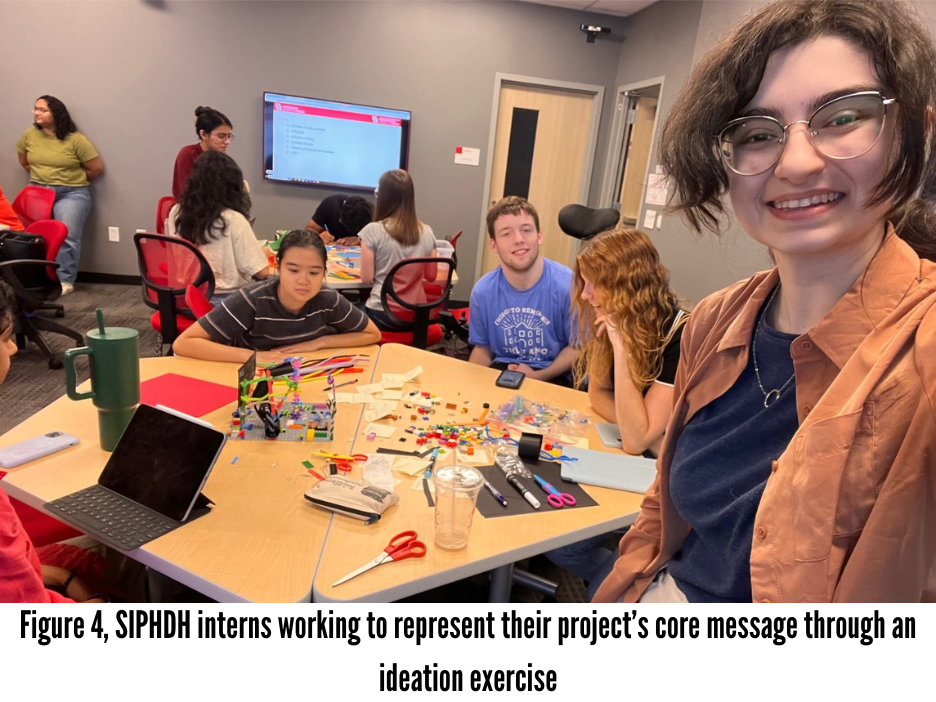
Miranda Ruzinsky, a graduate student in Public History at UH and program manager for SIPHDH, also led the interns in weekly reflections and activities. “This pioneering program was nothing short of transformative on both the data and human level,” reflected Ruzinksy. “SIPHDH was designed to not only teach and allow undergraduate participation in ongoing public history projects led by professors but was ultimately an acknowledgement that a diverse participation from different academic and societal backgrounds increases innovativeness and creativity.”
Throughout the summer, interns joined with Pharis fellows to take part in technology and data skills workshops and trainings offered by Dr. Garcia Merchant, the DHCF, and UH Libraries. Working in teams, interns were challenged to visualize their project’s core message through an ideation exercise, transform unstructured data into structured data, and create proper transcriptions of remediated material. Interns also had the opportunity to expand their resume by completing a micro-credential certificate in digital project management.
The summer internship culminated in a public Student Data Showcase with the Pharis program on July 31 at the Rockwell Pavilion. In short presentations, interns reflected on their work in terms of skills gained as well as what they learned about social responsibility, effective communication, and the intersection of digital methods, data, and the humanities.
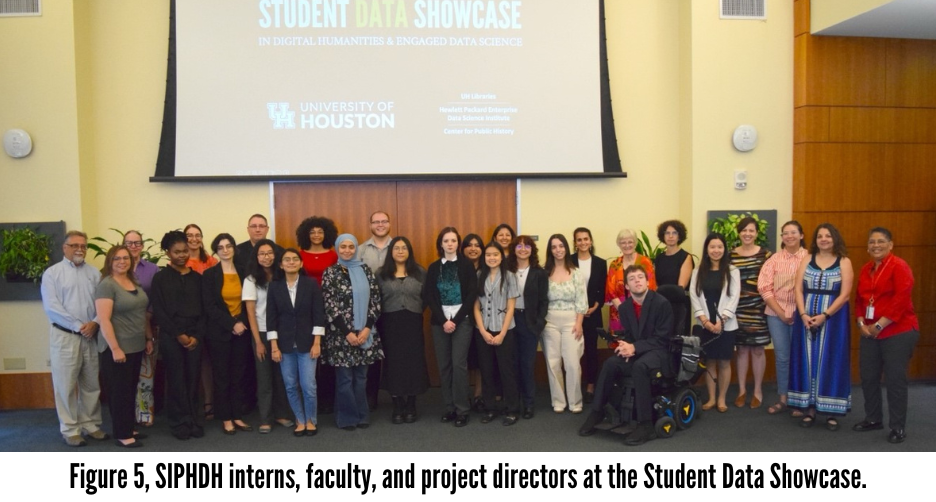
Dr. Claudia Neuhauser, Vice President/Vice Chancellor for Research at UH, spoke at the event. A chief supporter of the DHCF and SIPHDH, Neuhauser emphasized the importance of investing in digital humanities at UH. “We’re all humans and we live in a world where we tend to forget that…So for me, giving students and researchers to get together, talk about these histories…that really shows what the digital humanities can do: unearthing histories that would be forgotten otherwise and giving people a chance to really tell their story from their perspective with the communities.”
At the end of the showcase, Dr. Garcia Merchant celebrated the success of the summer program. “We've got a model now that takes quantitative and qualitative research methods [and] pulls them together in this team-based approach that is entirely about student success. We believe this approach mirrors the innovative and exciting character that makes the University of Houston and by extension the city of Houston such a successful place to live and learn.”
You can watch the Student Data Showcase in full here.